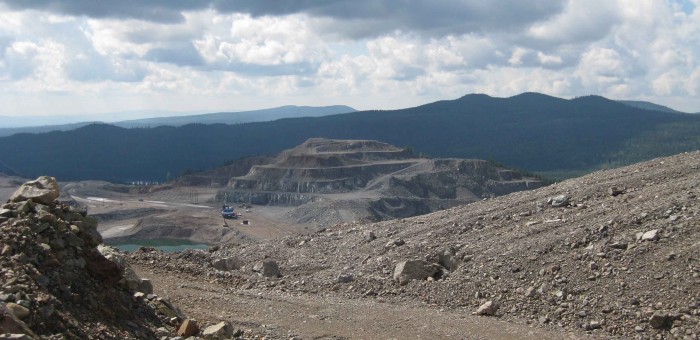In support of the electrification of the BC mining industry
Today in the legislature I rose during Question Period to ask the Minister of Energy Mines and Petroleum Resources why we are giving untold billions in subsidies to an LNG industry instead of investing in the infrastructure that would create long-term, sustainable jobs in our existing mining industry.
Below I reproduce the video and text of our exchange.
Video of Exchange
Question
A. Weaver: This government has been touting an LNG industry investment decision that will create, at most, 950 long-term jobs, yet B.C.’s internationally regarded mining industry, an industry that literally built our province, already employs more than 16,600.
While LNG prices have been sagging, solar has become the fastest-growing source of new energy worldwide, and photovoltaic cells need copper, molybdenum, silver and other metals that we produce in B.C. Batteries need lithium and graphite, the former of which has incredible potential at extraction when combined with geothermal energy production.
The B.C. Mining Association highlighted the opportunity that this presents in a 2017 report. We have the workforce, the resources and innovation necessary to make B.C. a global hub for solar technology materials, yet we choose to invest in emissions-intensive sunset industries, with comparatively few long-term jobs.
My question is to the Minister of Energy, Mines and Petroleum Resources. Why are we giving untold billions in subsidies to an LNG industry instead of investing in the infrastructure that would create long-term, sustainable jobs in our existing mining industry?
Answer
Hon. M. Mungall: Thank you to the member for the question.
There is no doubt about it. Mining is a foundational economic sector in this province. It is critical to our overall economy. I’m so glad that the member sees the important value and that its future is involved in electric cars, like the one that the member drives, and is involved in renewable energy and all the potential that mining has in terms of our future and those opportunities.
I honestly can’t say why the B.C. Liberals chose not to do so much for this industry while they were in power. It was very unfortunate. Because of that 16 years of neglect, we have stepped in with our first order of business — to start the Mining Jobs Task Force — and we have done that. That task force includes representatives from First Nations, industry, labour, environmental organizations, local government and academia. They have come together. They are doing yeoman’s work to identify how we can ensure that British Columbia is one of the most competitive jurisdictions in the world for this foundational sector to our economy. I look forward to their report.
Supplementary Question
A. Weaver: We’ve got an incredible opportunity to define a new vision for industrial development in our province. But it will take careful planning and a commitment to our clean growth strategy. This requires government to become more proactive in signalling the type of investment it wants in our province.
In rural B.C., this starts with ensuring that we have in place the electrification infrastructure so that both existing and prospective mines have the ability to hook up to our provincial grid, providing opportunities to electrify their operations while contributing to the creation of the clean energy sector.
My question to the Minister of Energy, Mines and Petroleum Resources is this: what tangible steps is her ministry taking to ensure that the province has the infrastructure in place to ensure that all future industrial development in our province can have access to the required electrification for their operations?
Answer
Hon. M. Mungall: Absolutely. I agree, exactly, with what the member was saying — how important mining is to our economy in this province, and the opportunity to electrify our industries so that they are producing less and less greenhouse emissions is a huge opportunity and exactly where we need to be going.
It’s one of the reasons that we included mining in cutting PST on electricity. The mining sector is not having to pay PST on their electricity, incentivizing them further to adopt electricity for their operations.
It’s very important as we look at the energy package as a whole that we have the capacity, as well as the energy generation, so that we can meet future demand.
Comments are closed.




